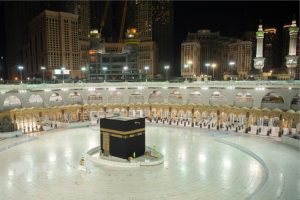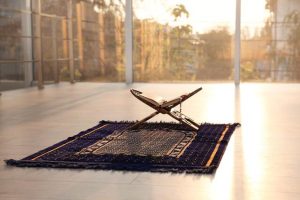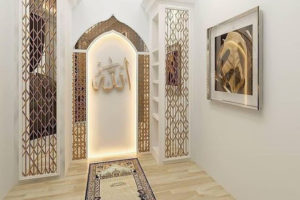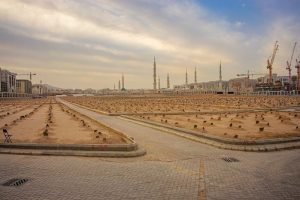In the sixth year after hijrat, Rasulullah (Sallallahu Alaihi Wasallam) and the Sahaabah (Radhiallahu anhum) set out on the journey from Madina Munawwarah to Makkah Mukarramah with the intention of performing umrah. All the Sahaabah (Radhiallahu Anhum), especially the muhaajireen, earnestly anticipated visiting the holy city of Makkah Mukarramah and …
Read More »Recent Posts
January, 2013
-
3 January
Occasions when the Miswaak should be used – Part 2
1. Before and after eating. عن أبي هريرة رضي الله عنه أن رسول الله صلى الله عليه وسلم قال إن كان قاله لولا أن أشق على أمتي لأمرتهم بالسواك مع الوضوء وقال أبو هريرة رضي الله عنه لقد كنت أستن قبل أن أنام وبعد ما أستيقظ وقبل ما آكل وبعد …
Read More » -
2 January
The Need to Seek Clarification for all Matters and the Importance of Observing Purdah
Imaam Shaafi`ee (Rahmatullahi Alaih) is reported to have said that it is better to undergo temporary disgrace by asking a question than to remain ignorant. It is the system of Allah Ta’ala that there will always be two classes of people; those who know and those who don’t know. It …
Read More » -
1 January
The Sunnah method of congratulating the bride and bridegroom after nikaah
Q: What is the Sunnah method of congratulating the bride and bridegroom on the occasion of nikaah? A: Whenever Rasulullah (sallallahu alaihi wasallam) congratulated a Sahaabi on the occasion of nikaah, he congratulated him with the following duaa: بَارَك اللهُ لَك وبَارَك عَلَيْكَ وَجَمَعَ بَيْنَكُمَا فِيْ الْخَيْر “May Allah Ta’ala …
Read More » -
1 January
Immerse Yourself in the Mercy of Allah Ta’ala
عَن جَابِرٍ رَضِيَ اللهُ عَنهُ قَالَ قَالَ رَسُولُ اللهِ صَلَّى اللهُ عَلَيهِ وَسَلّمَ: مَن عَادَ مَرِيضًا لَم يَزَلْ يَخُوضُ الرَّحْمَةَ حَتَى يَجْلِسَ فَإِذَا جَلَسَ اِغْتَمَسَ فِيهَا . رواه مالك وأحمد (مشكوة المصابيح 1/138) Hadhrat Jaabir (Radhiyallahu Anhu) reports that Nabi (Sallallahu Alaihi Wasallam) said: "When a person goes to visit …
Read More »
-
Hazrat Abu Zarr (radhiyallahu ‘anhu) moving to Shaam and Rabadhah
It was on account of Hazrat Abu Zarr Ghifaari (radhiyallahu ‘anhu) looking at Rasulullah’s (sallallahu …
Read More » -
True Achievements – The Achievements of Deen – Adherence to The Sunnah – Part 54
-
Hazrat Abu Zar’s (radhiyallahu ‘anhu) Quality of Worldly Abstinence
-
Hazrat Moulana Muhammed Yusuf Kaandhelwi (rahimahullah) – Introduction – Adherence to The Sunnah – Part 53
-
The Adherence of Hazrat Abu Zar (radhiyallahu ‘anhu) to the Instruction of Rasulullah (sallallahu ‘alaihi wasallam
-
Receiving Seventy Rewards
Hazrat Abdullah bin Amr bin Aas (radhiyallahu ‘anhuma) reported, “Whoever sends salutations upon Nabi (sallallahu ‘alaihi wasallam) once,...
Read More » -
Increase in Sustenance
-
The Reward of Fasting on the Day of Arafah
-
The Angel that Stands at the Blessed Grave of Hazrat Rasulullah (sallallahu ‘alaihi wasallam) to Convey the Durood of the Ummah
-
Reciting Durood when Entering the Musjid
-
Sunnats and Aadaab of the Guest – 4
16. The guest should not eat all the food which the host serves in the …
Read More » -
Sunnats and Aadaab of the Guest – 3
-
Sunnats and Aadaab of the Guest – 2
-
Sunnats and Aadaab of the Guest – 1
-
Sunnats and Aadaab of the Host – 6
-
Hazrat Umar bin Khattaab (radhiyallahu ‘anhu)
Hazrat Umar (radhiyallahu ‘anhu) is the second khalifah of Islam and the greatest person of …
Read More » -
Hazrat Ali (radhiyallahu ‘anhu) – Part Forty-One – Being Sent by Rasulullah (sallallahu ‘alaihi wasallam) to Level the Graves, Destroy Idols and Erase Pictures
-
Rasulullah (sallallahu ‘alaihi wasallam) Approving of the Verdict of Hazrat Ali (radhiyallahu ‘anhu) – Part Forty
-
The True Ulamaa – Hazrat Ali (radhiyallahu ‘anhu) – Part Thirty Nine
-
Du‘aa for Assistance in Settling Debts – Hazrat Ali (radhiyallahu ‘anhu) – Part Thirty Eight
 Ihyaaud Deen An Effort to Revive Deen in Totality
Ihyaaud Deen An Effort to Revive Deen in Totality




















































































